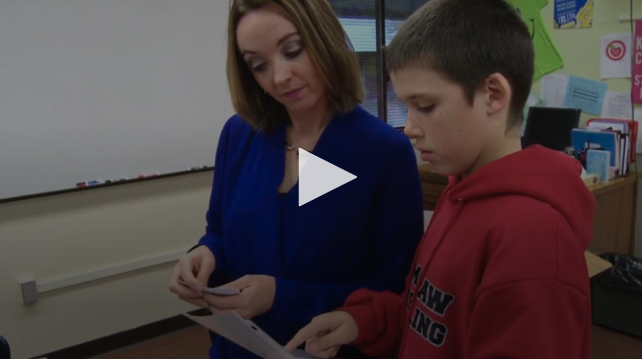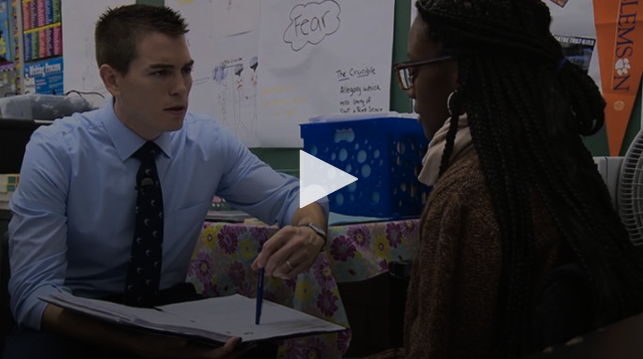Differentiation is one of those things that never seems like it can be 100% mastered. Once you have your differentiation strategies dialed in for a particular set of students… you get a new set of students! But with these new students comes a new opportunity to learn and refine your teaching approaches.
This summer, build up the differentiation strategies in your toolbox so you’ll be more equipped to meet the needs of your future students. Start with these ideas:
Watch Differentiation in Action
At Teaching Channel, we believe in the power of learning from other teachers. Sometimes the best way to learn new differentiation strategies is by watching someone else.
- In this video(Open Link in new tab), watch how high school teacher Laura Gurick plans and implements a lesson with the help of differentiation expert Rick Wormeli. By watching their coaching sessions, you can learn strategies to adapt for use in your own classroom.
 (Open Link in new tab)
(Open Link in new tab)VIDEO: New Teacher Survival Guide: Differentiating Instruction(Open Link in new tab)
Give Options
Not all students in your class have to be working on the same thing at the same time. Using menus can be a great way to give students a chance to choose what they work on.
 (Open Link in new tab)
(Open Link in new tab)VIDEO: Learning Menus: Giving Options & Independence (Open Link in new tab)
- In this video(Open Link in new tab), middle school math teacher Crystal Morey uses menus to help meet her students’ varied needs.
- To see another example of how menus can be used, watch(Open Link in new tab) how learning menus help social studies teacher Mary Vagenas differentiate for her students.
Use a Workshop Model
Implementing a workshop model allows students to work at their own pace while you provide feedback tailored to their individual needs.
- Even our youngest students can engage in a workshop model. Watch(Open Link in new tab) what reading workshop can look like in kindergarten.
- In this video(Open Link in new tab), watch how high school teacher Sean McComb uses a workshop model to personalize instruction.
Make Feedback Personalized
A key part of the workshop model, or really any differentiation strategy, is to give personalized feedback to students. Whatever strategy you choose to use, think about how your feedback can be the most impactful.
 (Open Link in new tab)
(Open Link in new tab)VIDEO: Making Feedback Meaningful(Open Link in new tab)
- This video(Open Link in new tab) shows how Sean McComb tailors his feedback to individual student needs.
- In this video(Open Link in new tab), watch how fifth grade teacher Rick Kleine helps his students set and meet personalized goals during reading workshop.
Differentiation is a topic worthy of much study. Just as there are a wide range of students who will come through your classroom doors, there are a wide range of strategies that you can use to meet their needs. Check out some of the great ideas from teachers just like you on our Tchers’ Voice blog(Open Link in new tab).
What differentiation strategies do you find most helpful? Share them below so we can all learn together, and join the conversation on our Q&A(Open Link in new tab).







